It’s shocking how much we don’t know that we don’t know. Let me introduce you to Ground News Pro - a news source comparison platform that adds a valuable bias analysis layer over current news event coverage.
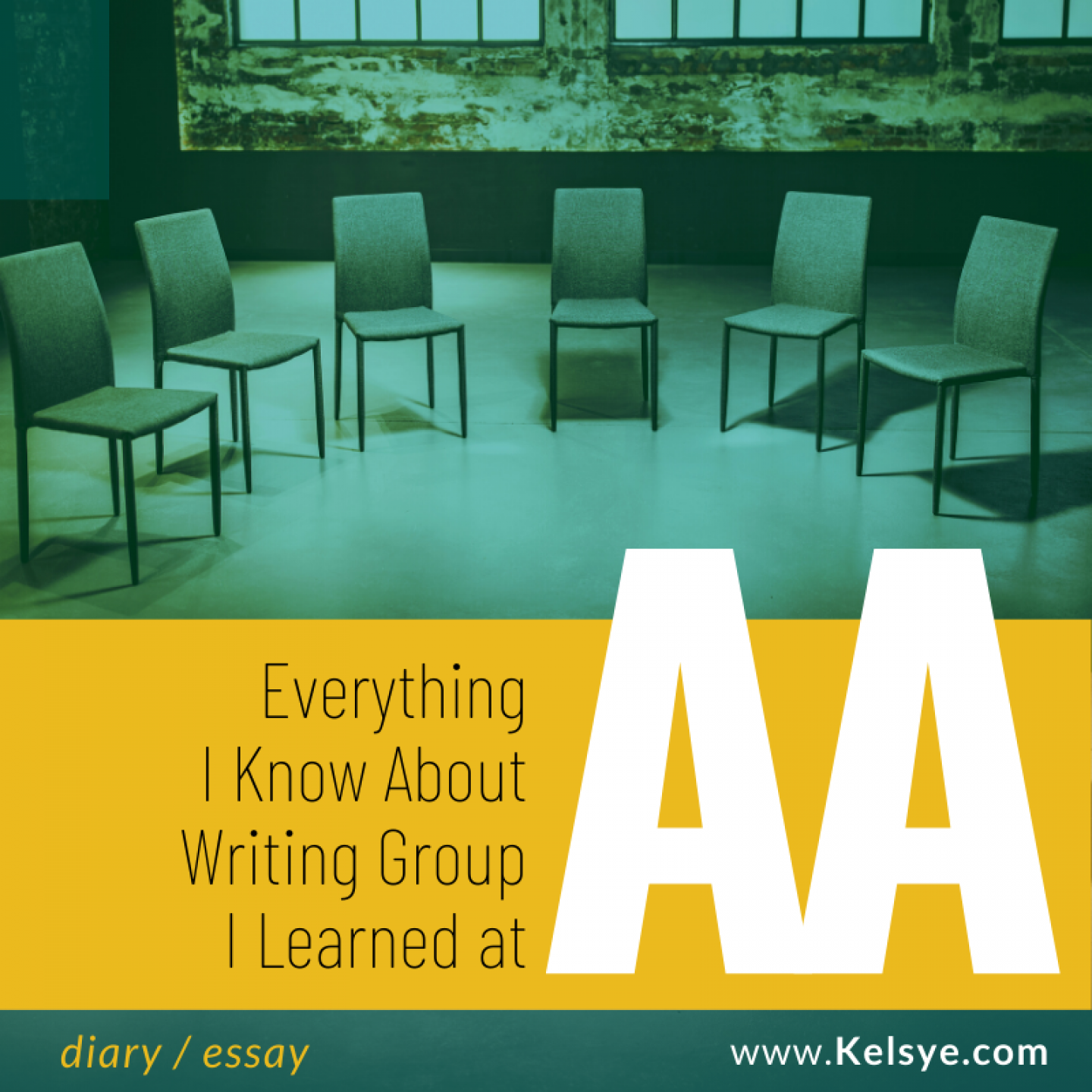

It’s shocking how much we don’t know that we don’t know. Let me introduce you to Ground News Pro - a news source comparison platform that adds a valuable bias analysis layer over current news event coverage.

It’s shocking how much we don’t know that we don’t know. Let me introduce you to Ground News Pro - a news source comparison platform that adds a valuable bias analysis layer over current news event coverage.
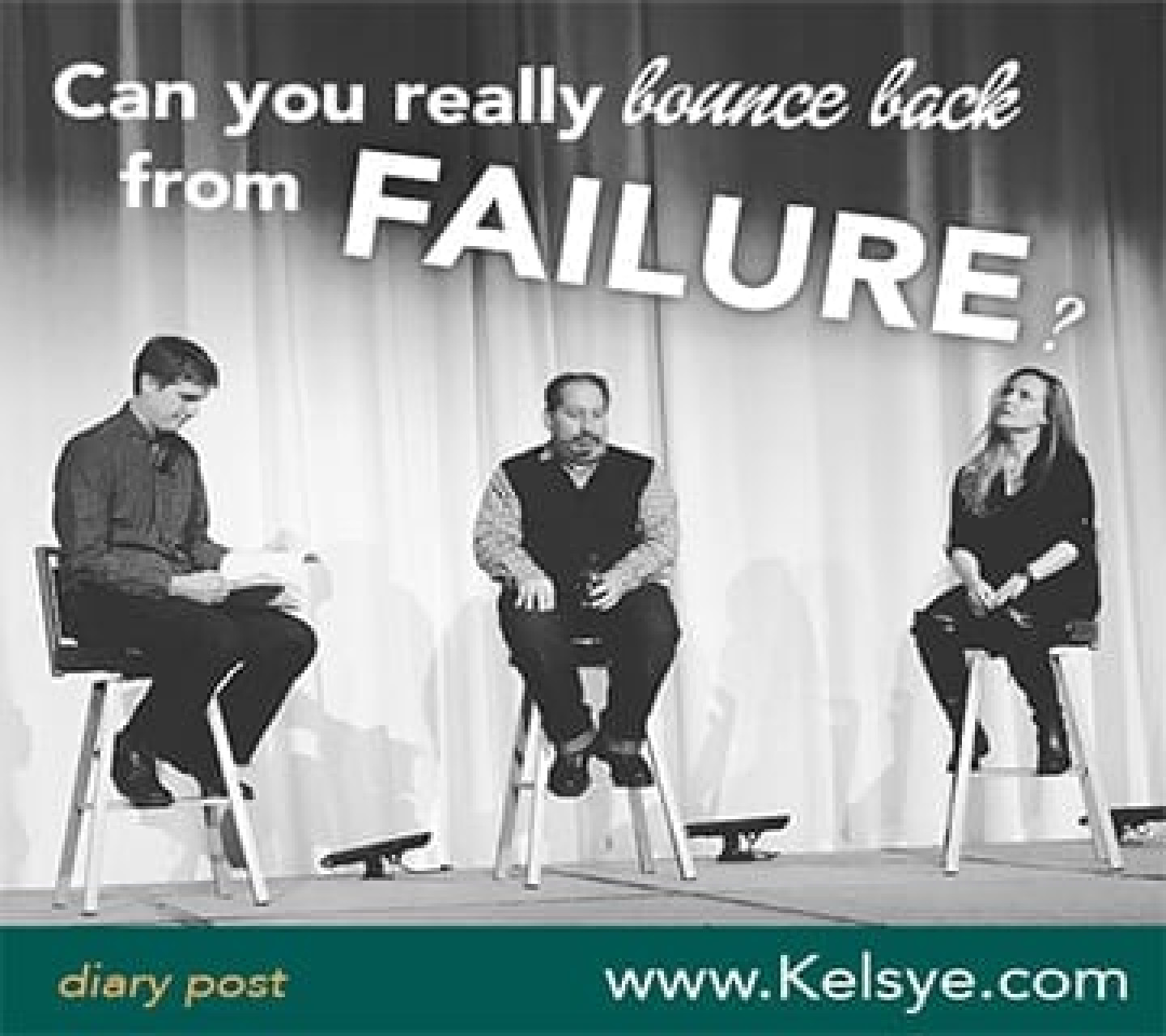
Imagine how honored I felt when asked to speak on the main stage at Geekwire's Startup Day? The request made me giddy. I've long admired the Geekwire crew and the articles they produce. They needed someone with expertise in failure. Uh, thanks for thinking of me guys.


Moment of epiphany number one.
When I was in college, I took a course called Citizen Artist that taught me how memes, information and presentation impact society. We completed an exercise on manufactured authority that I still think back on frequently.
The assignment was to create a history museum display of a false event or character. We were to present invented stories as complete fact, using such mediums as design, language and false evidence to convince viewers. I made up a character I named Teirny Flaxwell that was killed during the Ludlow Massacre of 1914. I created a plaque of commemoration by Mother Jones. I built a slick display that even featured crushed pottery from her trampled camp (purchased on sale at Value Village). I found images online of a sullen girl, ran a Photoshop filter to age the portrait and printed it out big.
My display measured five feet tall and three feet wide. It looked worthy of any history museum. Thank God for Photoshop skills and museum board. When the class came around to critique my project, I felt damn smug. How shocked I was when one of my peers snarked, “Yeah, but it’s not fair that we use her display as a comparison. She found such a good historical figure to use.”
Murmurs of disgruntled agreement rolled through the group.
This shocked the daylights out of me. We all had the same assignment. They all knew I was inventing facts. Yet, even with this insider knowledge, my well-educated, authority-suspicious peers were easily swayed into belief by my professional application of graphic design, assumed authority and found images.
“Teirny Flaxwell is not real! I made her up!”
Cutting looks told me they were certain I’d cheated.
Moment of epiphany number two.
I walked off the stage at the San Francisco amphitheater trembling and relieved. Having just pitched my startup to a panel of silicon valley VC’s in front of an audience of about 600 and not forgotten my speech or bombed out, again I felt that lovely smug warmth. Awesome! I can’t believe I just did that. I would have done an end zone dance if not still in view of the crowd.
I stepped out in the hall to check my twitter app on my phone and see the audience’s reaction to my talk. One tweet stopped me cold. They tweeted a picture of me gesturing grandly at my market size slide, captioned with the words “PUBLIC EDUCATION FAIL”. I squinted at the slide. What?! What was wrong?
The math. The math was horribly wrong. In giant numbers, projected about ten feet tall on the stage screen, my slide displayed that 750 thousand self-published books times 2,500 spent in services equals 18 billion a year.
Actually do the problem in your head. The answer is not 18 billion. It’s 1.8 billion.
Shame and embarrassment washed over me like a bucket of ice water. Holy crap. I can’t believe I didn’t catch that. Neither did my partner. Neither did the ten or so mentors that reviewed our slides. Neither did the empirically critical event director that made me run through my presentation five times for him. Neither did any of the earlier round judges or the hundreds of internet public that first voted our pitch through to finals.
The equation was presented with authority on a slide and all of us simply accepted it as fact, rather than take a single moment to think it through on our own.
Moment of epiphany number three.
My petite daughter took extra precautions her first day of seventh grade in order to not be mistaken for a lowly sixth grader. She’d recently cut her hair into a stylish bob and colored it purple. She refused a backpack and instead took a messenger bag. She selected a calculated cool outfit of zombie t-shirt and worn jeans. I watched her walk into the school with confidence. She waved at friends, didn’t even bother to turn around and say goodbye to me. Piece of cake.
About an hour later I got a garbled message from her telling me to please come home right now, that she was terribly sorry, she’d take any punishment and it was all a big lie.
I raced home to find her sitting on the floor in the middle of the living room crying while our big dogs nervously circled and sniffed at her head.
I swooped down immediately and held her tight. “What’s wrong! What happened?”
“It’s all a lie!” she moaned. “I can’t face my friends. I am so ashamed?
“What?! What?”
She told me how she went to her first class, homeroom… for sixth graders. At first she thought it might be a mistake. But there was the correct classroom number on her schedule. There was her name carefully handwritten on a name tag on the teacher’s desk. There was the teacher, telling her she shouldn’t be scared and that she was going to love the sixth grade.
She suffered through the class without saying anything. As she exited at the bell, she saw her friends in the hall. The thought of them seeing her with the sixth graders brought on a full blown panic attack. She fled, right out the door of the school and the entire mile back to our house.
I assured her it was surely a mistake. She shook her head, despondent.
I called the school and they told me she had been assigned to the wrong homeroom. She was most definitely a seventh grader and hadn’t been secretly flunked back.
I brought her back in time to catch the last two classes of her schedule. Again, she smiled as she left me, but was still obviously shaken, as though any moment someone would tell her this was the mistake and she didn’t belong there.
If she had simply raised her hand in class and said she was a seventh grader, the whole episode could have been cut off at the start. If after class, she had walked to the office and had them double check, the mistake would have been caught.
Those things didn’t happen. A figure of authority told my daughter she was something less than what she thought and she accepted it point blank.
How terrifying.
What the hell does this all mean?
When you learn how easy it is to manufacture authority, you may easily do so for personal gain and entertainment. Fake it and other people will believe it. Most people. Whether you choose to use this power for good or evil is up to you. Do with it what you will.
Yet even knowing this, are you aware of the authorities and judgments you’ve accepted in your own life that have been manufactured by someone else? Just as you may invent authority, you also have power over which authorities you accept.
Sometimes, the authorities that impact our lives do not have our best interests in heart. They may even actively seek to belittle or diminish us. Think of the judgments you accept, those from your family, your peers, the people who look at your work. It’s not too hard to see personal bias in these moments. Now scale your view up. What judgments do you accept from your society, your government, your God.
These things that we think as fact may, in fact, be someone else’s very good story.


My grandfather didn't die on my shift. I was back in the city. He died in the ranch house, horses milling about just outside his bedroom window. The aunts stood around him, hands on his ankles, his cheeks, weeping softly, making strange, tight faces, or so I imagine. I'm told my grandmother held his hand, curled up on the bed beside him like a cat.
Two weeks before death, when I entered the scene, he looked bad enough. My giant beast of a grandfather shrunken into the body of a frail old man. Low grumbling voice. Eyes of Caribbean blue darting glances sharp as icicles. Smiling at me. Barking at his daughters.
The aunts are four varieties of neurosis. I came often to relieve them of their posts.
“Get some sleep,” I'd say. They'd pile into pick-ups, Volkswagens, or jeeps and fly down the hill, finding even a trip to Safeway to pick up a prescription or to the sub shop for sandwiches more enticing than spending another slow minute in the quiet house.
My grandmother transformed into a whirlwind of energy, watering plants, feeding the horses, sorting piles of bills and hospital paperwork. My mother sat outside in a plastic lawn chair, smoking cigarette after cigarette. Drinking coffee. Not making sense. Both women jittery and over-tired.
I brought my daughter to float among them all like a wild hummingbird. She talked about dogs. She ate some of the cookies that had been dropped by. She stalked around my grandfather's bed to jump out by his pillow with a giant boo and make him laugh so hard his oxygen tubes would come askew and the aunts would descend in a flurry of deliberate hands.
Another week into the glorious countdown, I tucked daughter away with other family. My grandfather no longer laughed. Nor did he eat or drink or even open his eyes. An army of cousins paraded through his bedroom, the color draining from their faces when they approached his bedside. The aunts stood around like sentries. Twisting necklaces. Timidly reaching out to touch his arms or legs, then pulling back quickly, unable to forget a lifetime of terror in final moments. All business, they could roll him, dress him, wash him without hesitation. But not one could bring herself to place a loving hand on his brow.
I was not his daughter. I was never struck. His berating bounced easily off the thick shield of love and assurances my mother had woven around me. When in my youth I did win his tirades, whether from running the nags too hard, or leaving a gate not quite closed, he would redeem himself with magic tricks and utterly adoring looks when I came to cry in his arms.
I called in to my city job. Told them not to miss me for a while. I hung my leather jacket in the closet, stood my heels by the door between all the pairs of muddy pasture boots and silenced my phone. I sat in the ranch house for long hours and did what the aunts could not do. I held his hand and stroked his face. I mashed up the white pills, mixed them with water and slowly dripped them into the soft tissue of his inner cheeks. I talked about when he pushed me off the hill to teach me how to ride a bike, about that night we all slept on top of the camper in Yellowstone, about how he gave me the name for my daughter. I sang cowboy songs and talk about sufferin' and down by the river.
The aunts hovered behind me. Crying. Not crying. Trying not to cry. Crying. So desperate to touch him, to sing his name. My grandmother flitting in just long enough to fluff the pillows, adjust the blanket, then rush out again.
“I didn't know you remembered those songs,” she said to me, quietly, in the kitchen. “We haven't had a campfire since you were ten.”
My grandfather didn't die on my shift. I was down the hill, back in the city, checking in on my daughter. The aunts stood around him, hands on his ankles, his cheeks, weeping softly, making strange tight faces, or so I imagine.
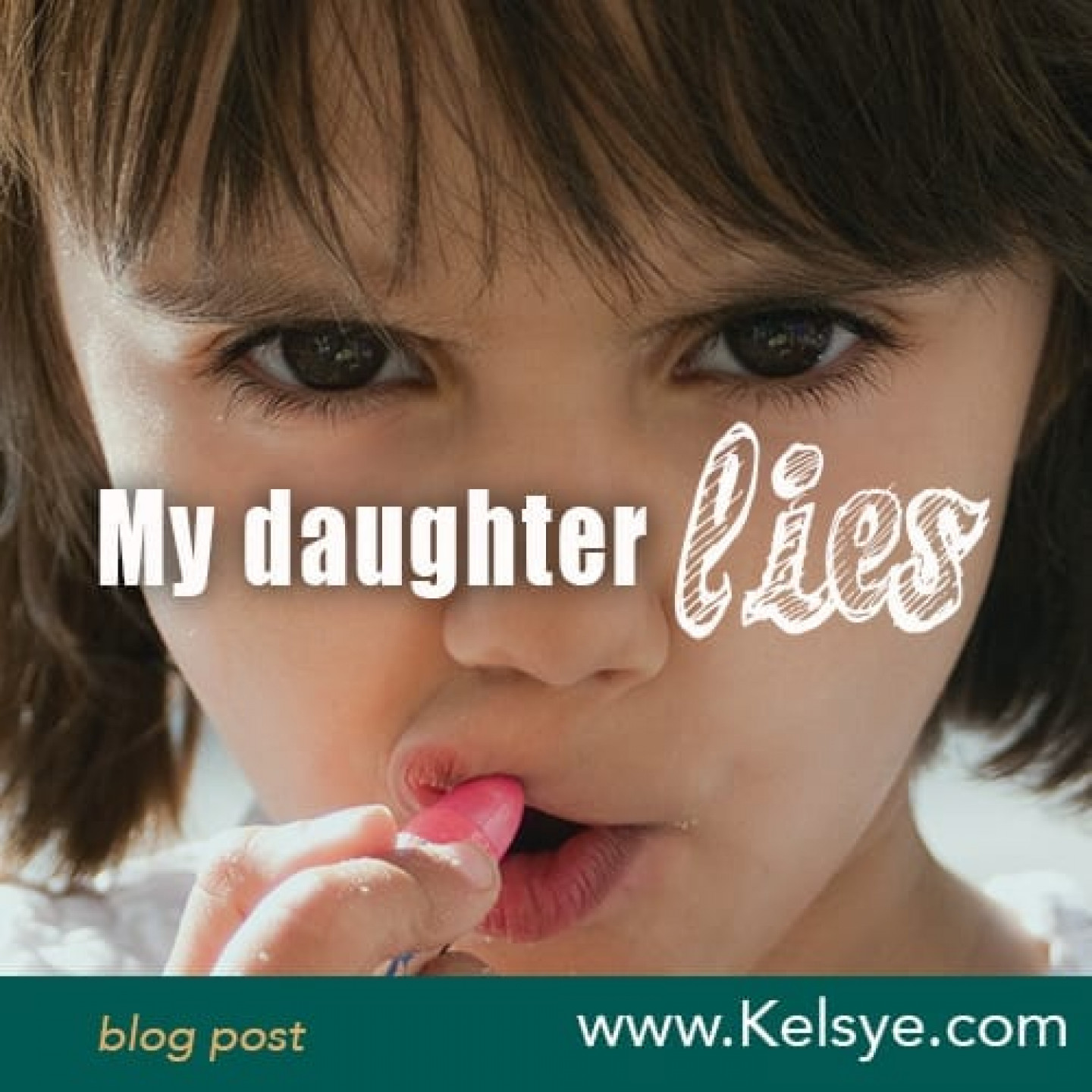

For her sixth grade language arts class, she wrote a story based on an experience from her life. She titled the story “Betrayal.” It opens with me telling her we’re going to get a new member of the family.
The early version that I helped correct varied greatly from the final draft that came home in her end-of-the-year mass of papers. When I first saw the final, I thought, Oh, she changed the title. I read on. This copy included a line that read, “My mom wore a fancy skin tight dress that looked more like a swimsuit than a dress.”
She described my car as poop-colored, wrote that it smells like left over fast food and that mysterious stains cover the upholstery.
A flash of embarrassment and anger flickered in my chest. My car doesn’t look like poop! My dresses aren’t that tight, are they? These thoughts quickly gave way to, wow, those are really good details.
The story documents the day I took her to the rescue center to get her a pet cat. You’d think I’d be the good guy in this story. No. Not so much.
She thought at first that we going to adopt a child. She writes of how all she’s ever wanted is a sister in her world of loneliness and step-brothers. When she learns that we’re just getting a cat, she feels “heartbroken and betrayed.” The grand resolution comes when she meets her cat for the first time and deems her perfect in every way.
My reaction upon finishing the story: My daughter sure is lucky she has such a dynamic mom to give her messed-up experiences to write about.
When I view myself from her eyes, I am an extraordinary creature. I move her around the world, sometimes to live, sometimes to visit. Her earliest years she bore witness to my rotating cast of loves. I wear heels and tall boots. I get my hair done. She watches me start companies, win investments in San Francisco, but spend weeks at a time in jogging pants while working on writing projects at home. Sometimes we are wealthy-ish, sometimes we haven’t a single dollar to our names. I’m a great character!
I really did leave it open to interpretation when I told her we were getting a new member of the family. I didn’t think she’d believe me and it would be funny when she learned she was finally going to get a cat. I didn’t anticipate that she’d instantly go all-in on the idea of bringing yet another kid into our cramped apartment. The day that story took place, I learned that my daughter has incredible capacity for love and generosity. She learned that her mean mom thinks it’s funny to trick her sometimes.
I do still think it’s funny. She’s so damn savvy. I have to work really hard to fool her these days.
The lines I’ve written about my own mother horrified her. For the sake of story, I limited the perspective to focus on particular aspects of personality. I chose details that reveal, that make her human, that show impact. These were not the ones she wanted to see recorded. I know a little bit better how that feels.
I do occasionally wear tight dresses. My daughter says they look more like bathing suits. Exaggeration, but oh how it improved the paragraph.
The fact that my daughter is a writer shouldn’t surprise me. Even if she never writes an another story her entire life, she’ll always be a writer. She knows how to carve a page, how to build from nothing an entire world populated with character, emotion and action. How grateful I am to be a part of the world she creates, even if I play the role of wayward mom.

My daughter was four-years-old when I wrote this essay. As I had very little experience with death in my own life, guiding her through her first glimpse of mortality proved challenging for me. I wasn't ready. Parenting proves to lean towards "making it up as I go" side of things.

Ichi dies at night, just after Daughter goes to bed. I consider flushing him right then, but decide I better wait until morning so that Daughter is not startled to hear of his demise and disposal after the fact. I scoop him out of the bowl and leave him to float all night in the little pink teacup on top of the TV. Daughter wakes up late. The babysitter is already standing at our door and I have just a couple minutes before I need to rush out to work. I give Daughter the bad news and show her the fish.
She cries.
“Why did my fish die? I don’t want it to die forever!”
Real tears. My heart races as panic sets in.
“Well, we need to decide what to do. We can bury it in the park, or we can flush it so… it can go out to the ocean... to fishie heaven.”
More and more tears. Third degree breakdown. I glance again at the clock in the wall. Obviously, the funeral is not going to go smoothly in the final minute I have left before I need to leave. I wrap the teacup in plastic and place it in the refrigerator, between the daikon radish and mini-yogurt drinks.
“Sweetheart,” my voice low and calm, “when you are at school, think about how you want to say good-bye. We’ll take care of Ichi when I get home.”
After teaching my last class of the day, I skip out on my usual hour of loitering in the teacher’s lounge trying to catch a moment in the same room as crush and head straight to pick up Daughter. I wait anxiously in the entryway to see her, wondering if she’ll be tear-stained and red-faced. She looks fine.
We are standing around with all the other moms helping their kids put on shoes and sweaters when Daughter shouts, “My fish died! We’re going to flush it down the toilet!” She bounces up and down in her stocking feet.
Uh, yes, that’s right. We’ll be going now. Have a nice evening everyone.
On the walk home, Daughter starts moaning again. She is obviously sad, but also experimenting with grief. Her voice goes up and down in concentrated scales. She cries for a second, then stops mid-sigh when a thought occurs to her.
“Where does the fish go when we flush it down the toilet?” Her voice is crystal and lilting.
“I think it goes out to the ocean. To fishie heaven. She’ll be so happy there. It will be beautiful, just like in the Nemo movie.”
I want to smack myself. Did I really just compare the afterlife with a Disney movie? And I don’t even think there is a fish heaven. I promise myself not to lie to my daughter about death again. I say it twice in my head. Don’t lie about death. Don’t lie about death. Daughter resumes her dramatic murmurings.
We get home, take the fish out of the fridge and stand in front of the toilet.
“Good-bye Ichi,” I say. “You were a good fish.”
Daughter really starts to cry now, fifth degree, and I’m a little surprised by how deeply upset she seems.
She moans, “Don’t die forever!”
I drop the fish into the toilet bowl and gently ask, “Do you want to be the one to flush it?”
Daughter’s crying stops in a heart beat.
She springs forward like a leopard. “Yeah!”
Whooosh, around and down Ichi goes. Daughter enthralled, hangs over the toilet with her mouth open and her eyes wide.
“He’s all gone now,” she says to me, then skips away top play with her toys.
The other fish last a few more weeks. The one black one, Toto, dies next. His funeral is a much quicker affair. Then a few days later, Ni goes bottoms up. Daughter scoops him out herself and does the flushing honors. This morning, our last survivor, San, finally gives up the good fight.
Daughter wants to get a turtle next.
Oh little turtle that we bring home, I apologize in advance.
Author note: We never did get a turtle, but we have been through a variety of small, completely un-lovable mammals. She has a cat now. We love the cat. It survived.
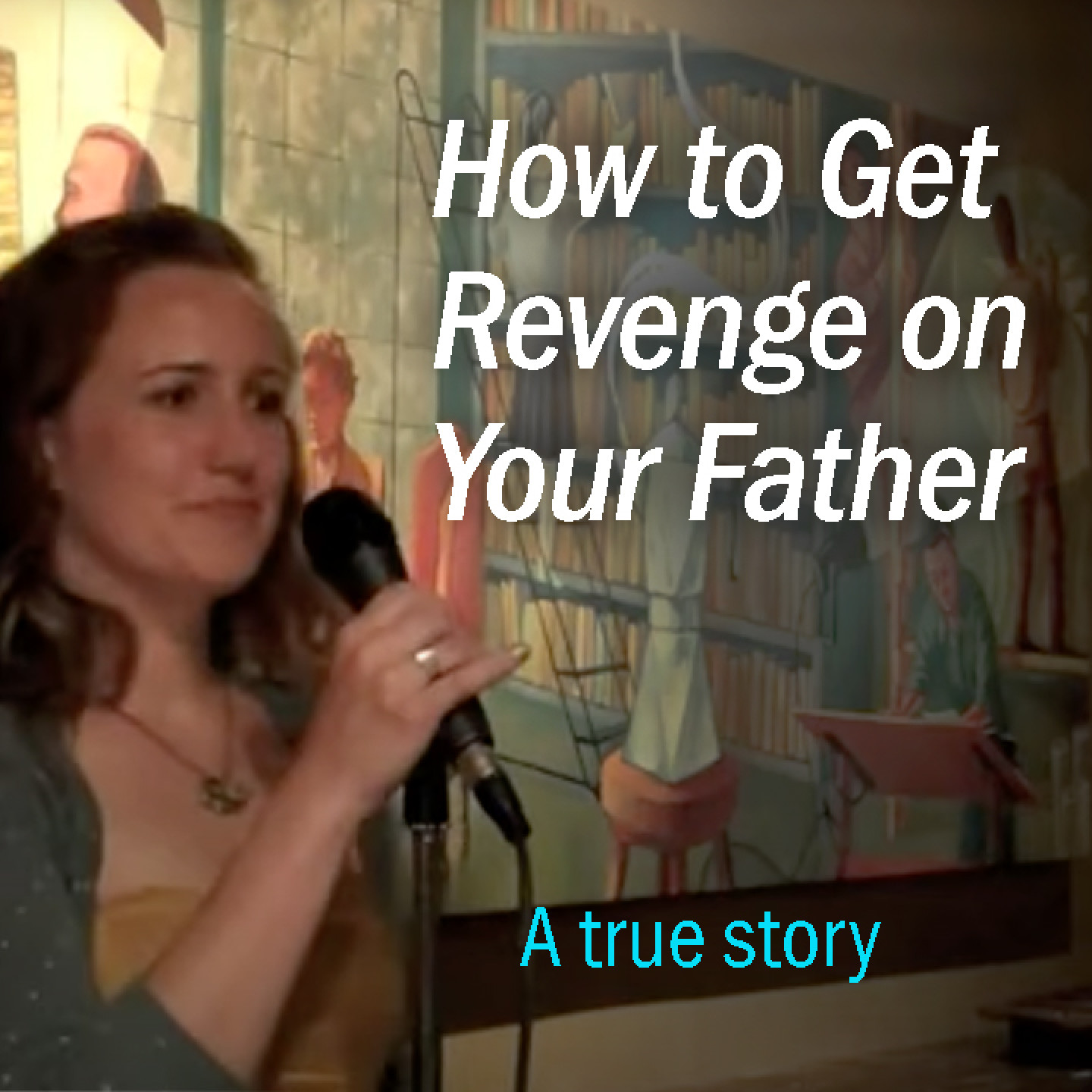
You might think your dad was embarrassing growing up. No. Your dad likely ranked mildly annoying on my personal scale of PIH (Parental Induced Humiliation). My dad, however, claims the title King of Adolescent Mortification. But don't feel sorry for me. I got my revenge. Watch the video above to hear me tell the story live at an event in Seattle.
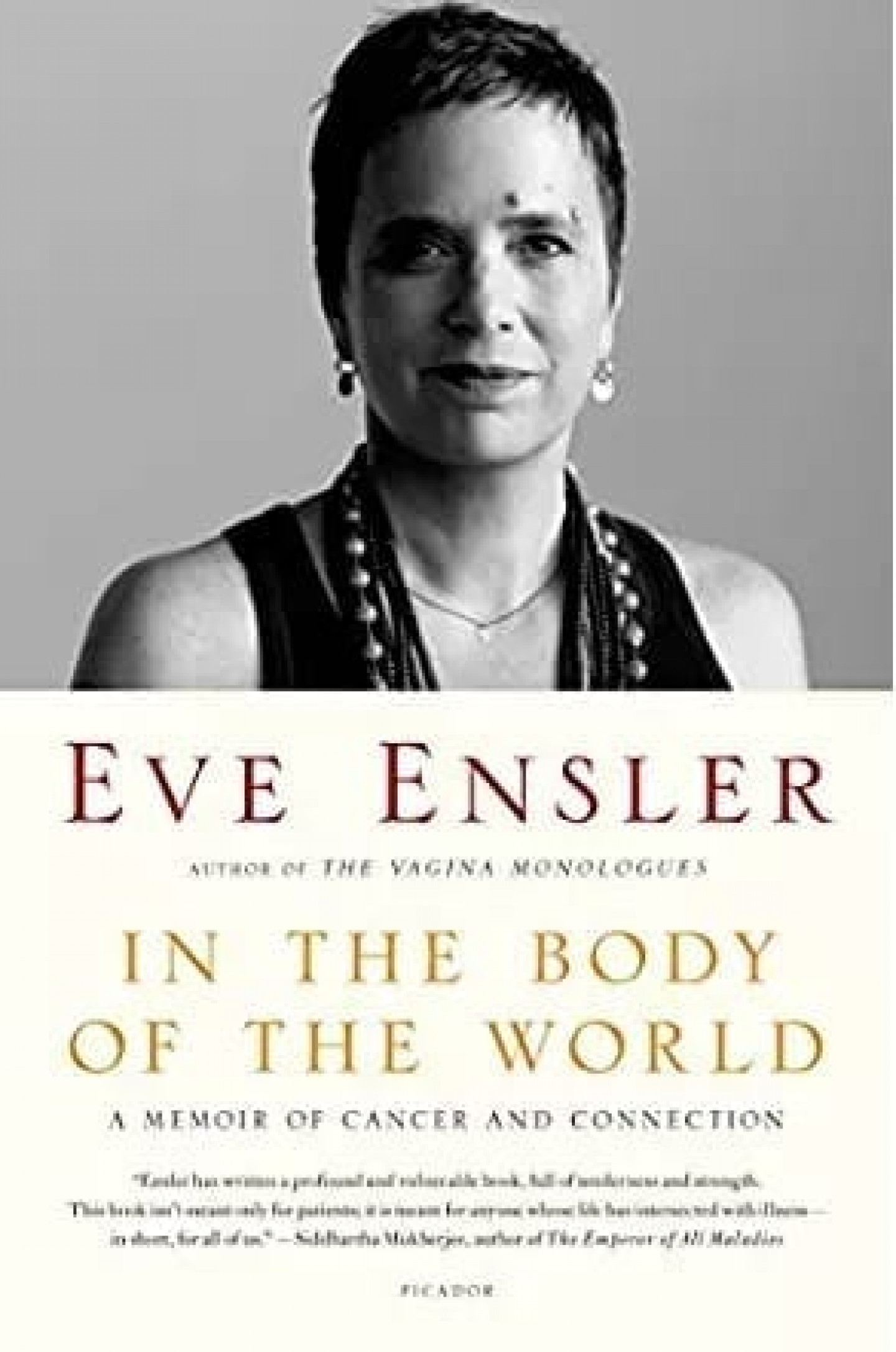
The theme of the week for me seems to be touch.
Do you "live in your head?" Are you one of those who are rarely present in the moment, but instead drifting off on a swiftly flowing current of thought? I am. While I love the robust riches of my mind, the years have shown me that I miss much when I can not anchor myself in the physical world, in even my physical self.

“A mother's body against a child's body makes a place. It says you are here. Without this body against your body there is no place. I envy people who miss their mother. Or miss a place or know something called home. The absence of a body against my body created a gap, a hole, a hunger. This hunger determined my life. ... The absence of a body against my body made attachment abstract. Made my own body dislocated and unable to rest or settle. A body pressed against your body is the beginning of nest. I grew up not in a home but in a kind of free fall of anger and violence that led to a life of constant movement, of leaving and falling. It is why at one point I couldn't stop drinking and fucking. Why I needed people to touch me all the time. It had less to do with sex than location. When you press against me, or put yourself inside me. When you hold me down or lift me up, when you lie on top of me and I can feel your weight, I exist. I am here.”[white_space]
― Eve Ensler, In the Body of the World: A Memoir
Eve well-illustrates a familiar ache. Human touch asserts a certainty. Proof. Evidence. Connection. For those of us that dwell chiefly in our minds, the hunger for this confirmation of our existence in the physical world may grow until we binge in corporeal experiences. I penned such episodes in my novel, which focuses not just on the separation of body and mind, but also the division of self.
We sit on the bed in my minuscule room, glasses of sickly sweet plum wine in our hands. He looks at me with a sadness so deep that I worry it might take me down with him. He sets his glass on my nightstand and places his hand on my thigh. A breathe I’ve been holding releases from me, long and slow.[white_space]
First touch brings great release. The frenzied anticipation fades, smooth relief flows through my limbs. Even from a stranger, a gentle touch feels like love. It is the realization that you can reach someone, can make a connection, even if you barely share a common language. He touches to feel my stockings and the curve of my thigh, but also to feel the heat and calm that comes when you are close to another person.[white_space]
- Kelsye Nelson, The Secret Life of Sensei Shi
Eve's book talks largely of trauma, of physical violence, of illness. These horrible actions came with a gift of mindfulness, of clarity, of immediacy. How lucky we are that our experiences needn't swing to such extremes in order for us to achieve presence of being. Here are the things that I do to root my mind to moment:
I love my brain, and the ethereal journeys it takes me on. Some of my favorite activities, such as writing or reading or dreaming regularly lift me from the concrete world. The trick, per usual, is balance. I have a natural inclination towards happiness. If for some reason I decide I must hold on to anger or resentment, I must actively work on it. (Which, like a fool, I sometimes do.) It's the same in this situation. My natural inclination is towards the mind. While a trauma or violence may rip me out of thought and into the present, in normal days I must make vigilant efforts to wake from my dreams. It's work. Thankfully, pleasure accompanies the process.
And you? Where do you stand? Do you live mostly in mind or in body? What do you do to anchor yourself to passing moments?
Also, go read Eve's book. It's incredible.

An alcoholic family lives by three rules, don’t talk, don’t feel and don’t trust. We were breaking each and every one of them and my mother was not pleased. My sister sobbed, gripping tight on my arm. My step father placed his head in his hands, quiet. I looked at my mom, turned up my palms and asked with voice soft as downy, “Why won’t you go?”
“I won’t be bullied,” she said. She crossed her arms over her chest, but her lower lip trembled like a toddler’s on the verge of melt-down.
My sister choked back her sobs and looked at me. It was over. Our month-long planning for this intervention failed us. All those hours with the drug and alcohol counselor. All that research. All those phone calls with the health insurance representative getting prior approvals. Wasted. That bag with ten-days worth of rehab distractions we carefully packed was going to remain by the door until one of us unzipped it and put everything back from where we’d gotten it. No long car drive for our family today.
Later, unable to sit still all evening with my own household of sweet souls completely innocent of the struggles of a family diseased as the one I come from, I got into my car and drove to the closest al-anon meeting.
When I walked into the room at the Friday night meeting on Capital Hill, alarm bells sounded in my head.
“Welcome!” said a man with too-tight, lavender pants and a shiny bouffant.
“Hel-lo,” I said, drawing out the word while surveying the room packed entirely with men. Very stylish men. Very fit men.
I sat in the seat closest to the door. I simply found the al-anon meeting closest to me that started within the next hour. I hadn’t bothered to check if it was a meeting for a defined group. I’d seen groups just for women. Had I stumbled into a meeting just for gay men?
The man with the lavender pants took the seat on my right and winked, trespass forgiven.
The men took turns sharing their stories, all earnest, all familiar. The writer in me reveled in the narratives; the gay man accidentally shacked-up with his dying father’s female caregiver because he felt responsible for taking care of her, the firefighter who keeps falling for meth-heads, stuck in a rescue pattern that leaves him burned. The man whose partner is out right now, in bars, doing God knows what with God knows who.
I told the story of my mother. I cried. All those eyes locked on me, watered.
“She wouldn’t get in the car. No matter what we said, no matter what we did.”
When we get to the part where we join hands and say the serenity prayer, I already know the words. They come to me without effort. God grant me… From the ages of about seven to ten, I was a fixture in my father’s AA meetings. The people were nice and friendly. One regular took on the moniker “The Butterscotch Man” for the hard candies he brought expressly for me. I loved AA. I love al-anon. It feels like writing group.
At my writing group, we greet each other with warm words, sit in click-clacking solidarity, tell stories to our screens and notepads. Often, writing group is the only intersection of our busy lives, the rest of our days unseen and unknown to each other. Anonymous. No matter. All those little hours of support through proximity over the years add up to a sort of family culture that satisfies me deeply. If I ever fall to the disease of my parents, or some new one of my own discovery, and disappear from the world, I know one of these people will eventually come knock at my door and ask where I’ve been. I stretch that safety net across the back of my mind.
Tomorrow is my birthday. My mom has sent me flowers a check much more generous than prior years. Guilt stabs at me when I rush to the back to deposit it into my depleted account. Payoff money.
“Hi, Mom. Thanks for the flowers and generous check,” I say in our first phone call since that Friday when she crossed her arms and told us no.
“Happy birthday, I love you sweetie.”
“I love you too, Mom. I really do.”
I usually fill our conversations with updates about my daughter, or showcasing some new accomplishment I’d like her to admire and approve. Now, I let the silence seep in. She stays quiet as the seconds tick by. Now that we’ve broken through the old rules, going back to the way things were before strikes me as entirely unbearable. I talk.
“Tell me again,” I say. “Why.”
Mom huffs a deep breath into the phone. I know she is scowling and pursing her lips, even though I can’t see it.
“You have the power, Mom. You have complete control.”
No response.
“Okay. I love you, Mom. I’ll call you next week.”
“Love you too.” Her voice seems smaller, father away.
The subject of my sister’s email has just one word, outpatient. I open it on my phone, unwilling to wait until I get home to read it. She admitted herself today, her message reads. It’s not in-patient, but it’s three hours a day for ten days. She went completely on her own. I smile.
God grant me…
Author's note: How strange it is to share this piece while at the same time promoting a book that glamorizes drinking.
I might earn a commission if you purchase a service or item linked from this page. Thank you for your support! ❤️